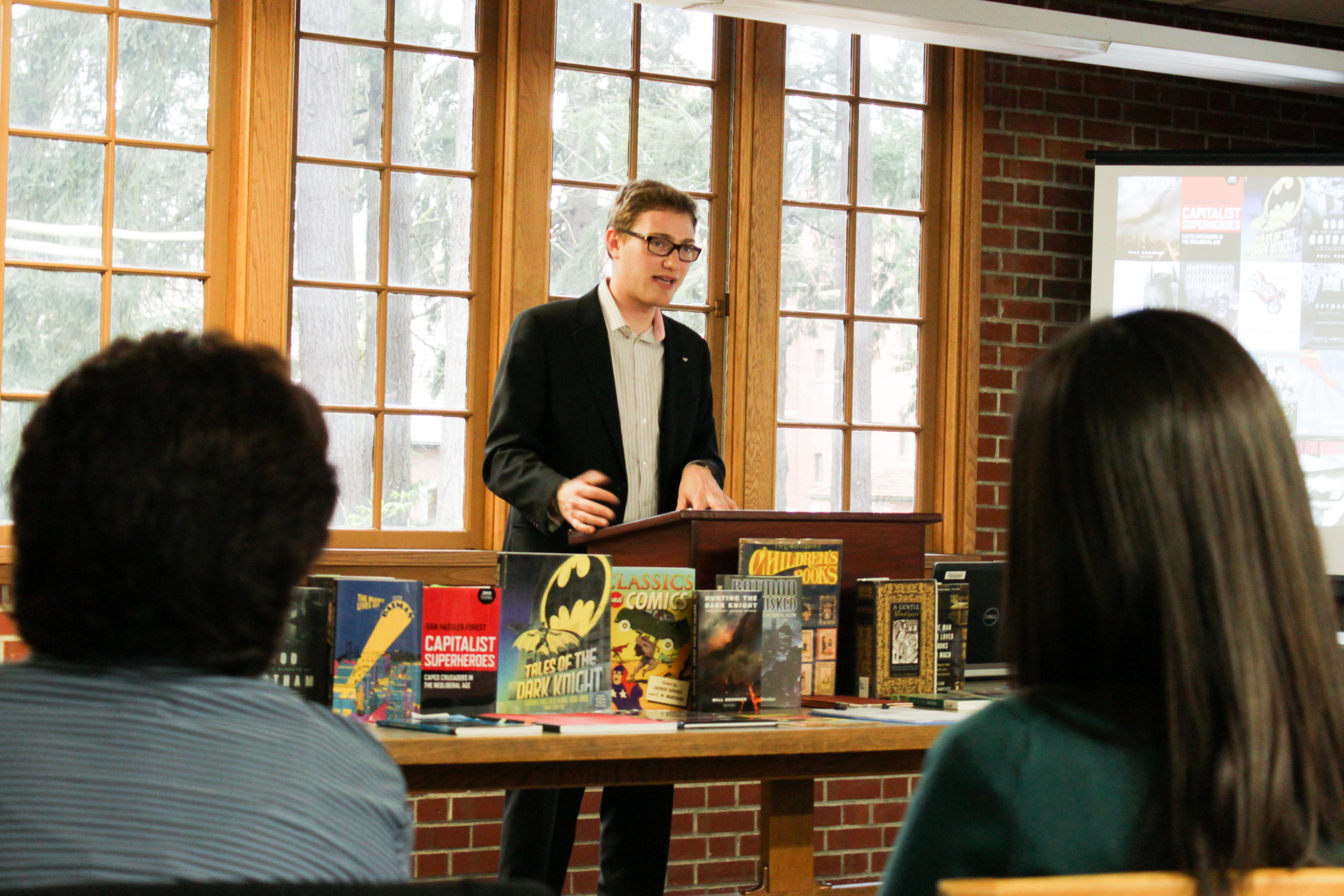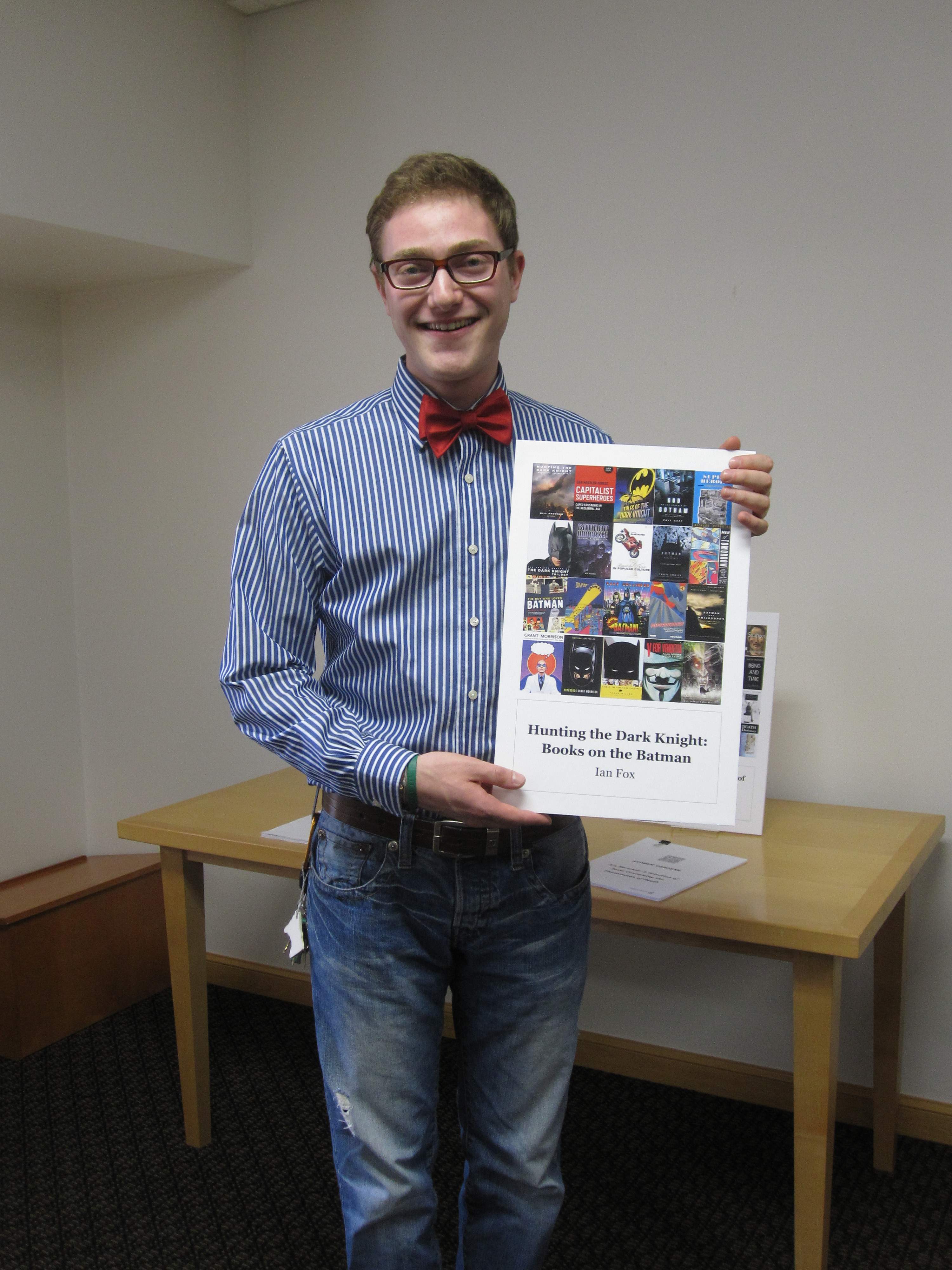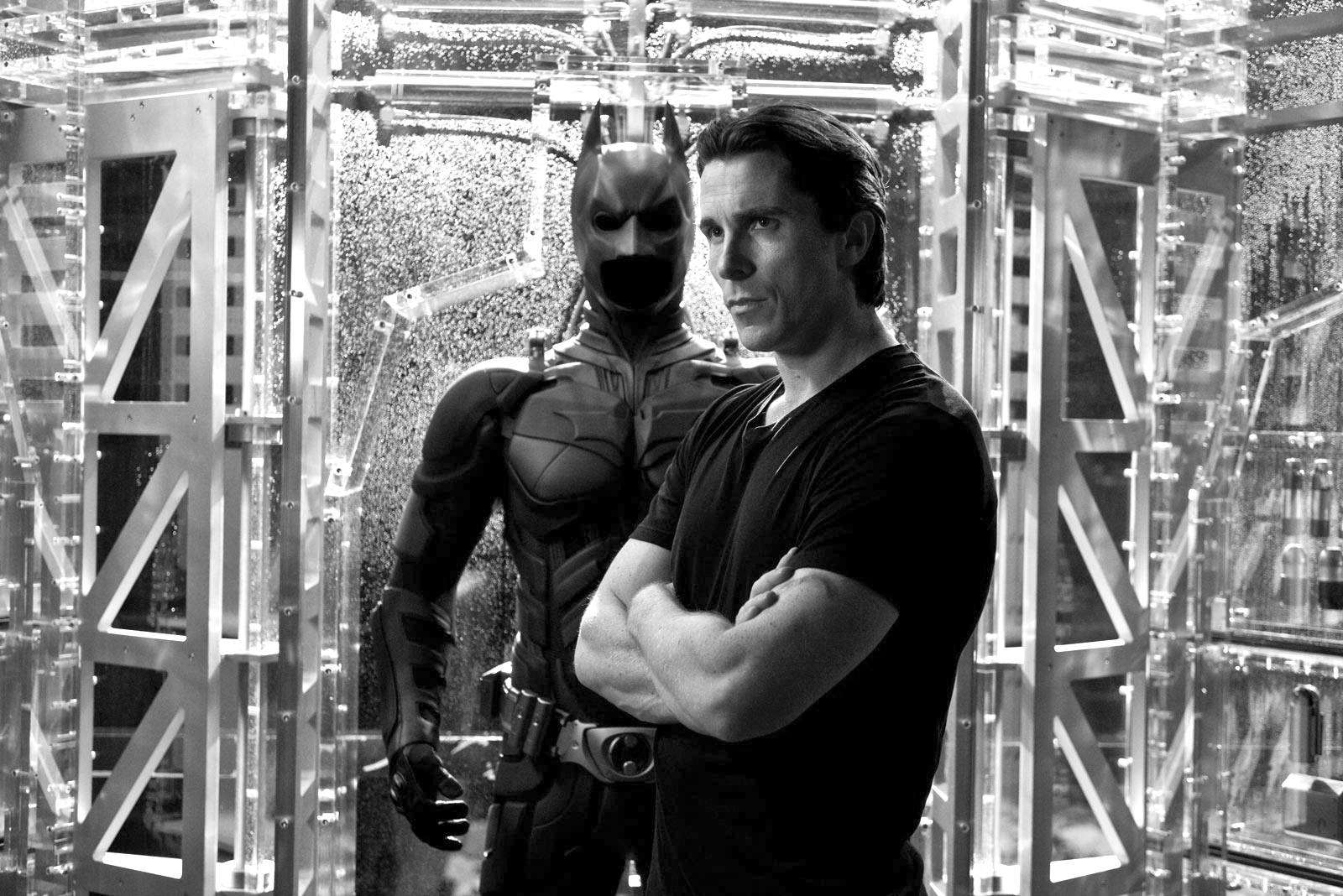All about the Batman: two-time contest placer talks about how collecting books changed his life

Two-time placer of Puget Sound’s Book Collecting Contest Ian Fox spoke last Thursday about his experience delving into book collecting. Fox hoped that his talk informed and inspired students to participate in next year’s contest, which will occur at around this time.
Fox first decided that he would participate in, and win, the contest after seeing the posters around school. He did some research, reading previous winners’ essays and looking up tips on how to collect books before picking a topic.
“It’s kind of the backward way of doing it, you’re supposed to know what you’re passionate about and then do a collection, as opposed to deciding you’re doing a collection and then figuring out what to do,” Fox said.
His first collection was called Devolution of Man: Mental and Social ‘Madness’ Throughout Literature. “It was a group of books that I curated to make a rhetorical statement. I was putting the texts in dialogue with each other in order to come up with an argument,” Fox said.
He chose books based on how well they fit the argument that he was trying to make, selecting books that conceptualized psychological madness, books that had characters that were just societally deemed crazy and another category where the line between the two was blurred. Fox used these books to push the question of what madness was, really.
The day after winning second prize, Fox started thinking about how he could win first place. He had several ideas floating around, but was attracted to the concept of anarchy and the lack of governmental systems in literature. While he was sure that this was the concept that he wanted to build his story on, he could not quite get the collection started.
During the summer, however, Fox recalled an essay he had read when he first became interested in the competition, which explored the different social theories within the movie The Dark Knight. Basically, the essay concludes that there are three types of social theory in the movie, and that Batman falls into the category of vigilantism, something that Fox considered anarchy. Fox thought that this was close enough to his original idea, so he decided to “make it a thing.”
“There were some issues with my wanting to do a collection on Batman. The main one was that I probably read one or two comic books in my life,” Fox said. He was concerned about appearing like a fraud, or how people would respond when they found out that he was not an aficionado of Batman.
“I was really intentional about not claiming that I know a lot about Batman or that I have experience with Batman. So it wasn’t a collection of Batman books, it was a collection of books on the Batman,” Fox added.
Fox was looking at theoretical, historical and cultural interpretations of the Batman. When he had around 15 or 16 books, he hit another wall. So Fox sent an e-mail to the author of one of his favorite books asking for recommendations for his collection.
After a couple weeks, the author responded with a list of 10 or 15 books, including descriptions of each and maybe a little blurb about the author if he knew him. This helped push Fox’s collection to completion. Now all he had to do was write an essay tying it all together.
“My essay was three pages, but my annotated bibliography was somewhere around 17 pages, single-spaced,” Fox said. Fox had noticed that the girl who won the year before him had put a picture of an ocean on the top of her cover page (her collection centered around nautical literature and sailing). Thinking that it looked nice and had made her paper stand out more for the judges, Fox followed suit and put a small bat symbol on the top corner of his paper.
“All of that is noticed. It’s called E for Effort,” Social Sciences Librarian Andrea Kueter said. Kueter had previously judged the competitions and affirmed that every detail was taken into account, from the content of the collections to the academic connections that are made within the essays, to little aesthetic touches such as an emblem at the top of the page.
Fox said that Batman changed his life in several different ways. “It sort of opened my eyes to books as objects and as artifacts of knowledge, because I hadn’t really thought of that before. It showed me that whatever I’m passionate about, I can follow it to the ends of the Earth,” Fox said.
Fox had some parting advice for aspiring book collectors. First, keep it cheap; book collecting can get fairly expensive quickly, so try to pick a modern topic with recent research. Second, search in unusual places—the Internet is your friend. Third, commit to the collection, follow your passion and let it shape itself and finally, follow what you love.
For anyone that is interested in participating in next year’s contest, check out the website at www.ups.edu/academics/academic-resources/collins-memorial-library/book-collecting-contest/. You can also search Book Collecting Contest University of Puget Sound. Next year there will be two separate prizes, one for best collection and one for best essay. Best of luck to you all!


